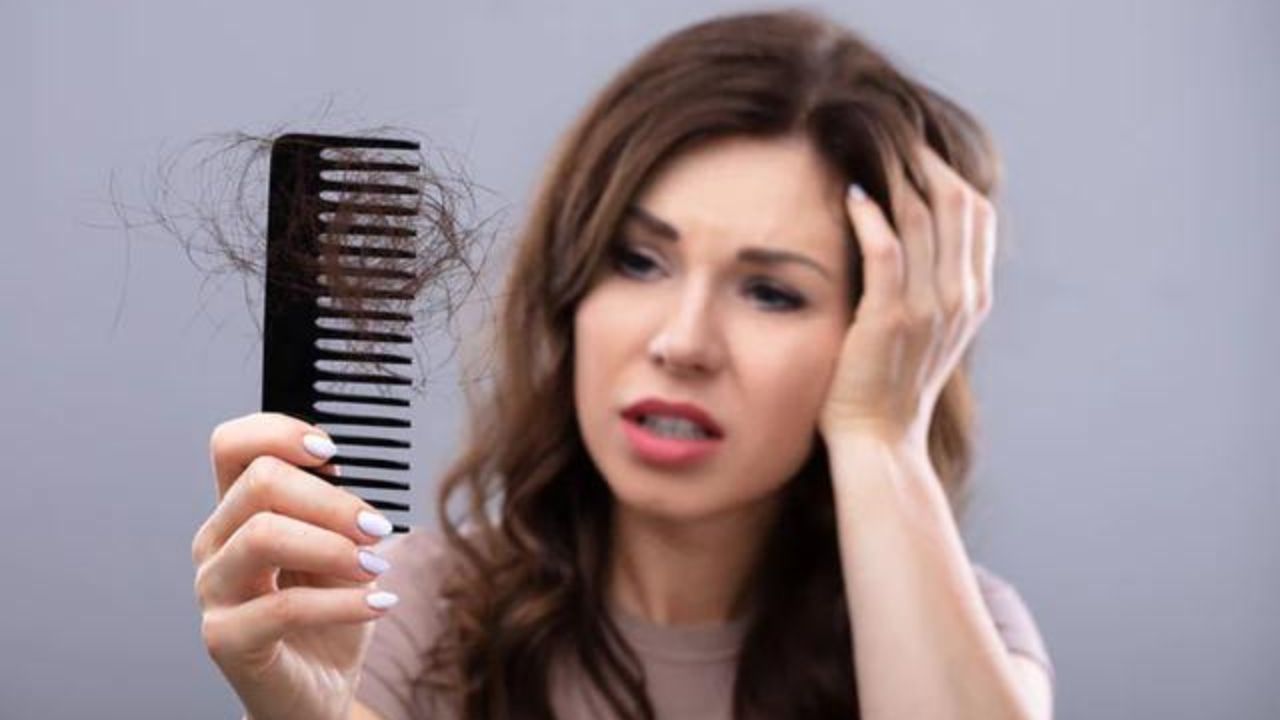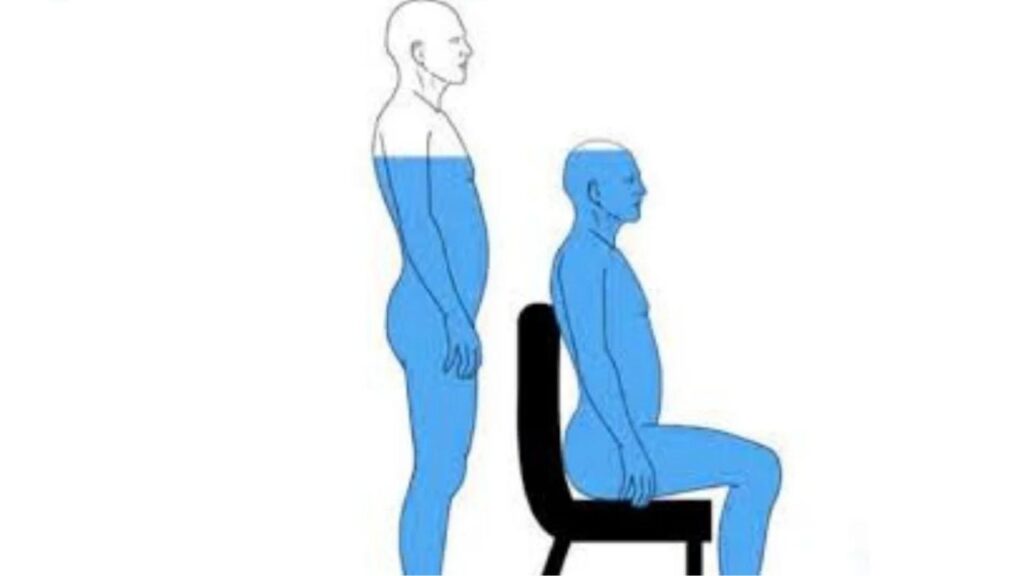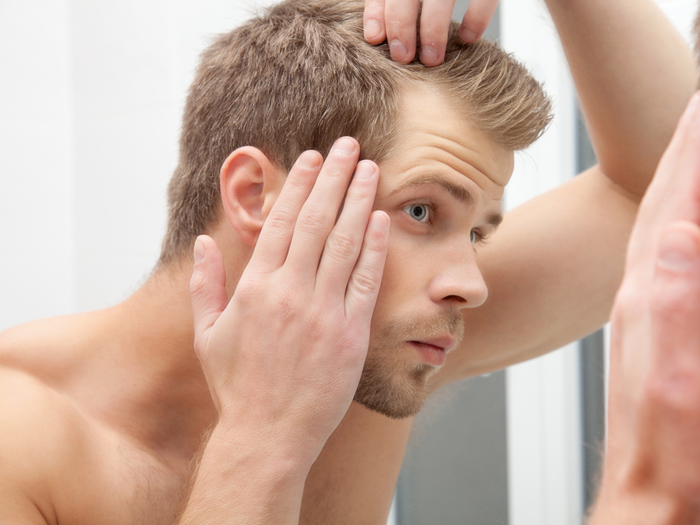
Can POTS Cause Hair Loss? Although POTS does not directly cause hair loss, certain syndrome-related factors might be involved.
The autonomic nervous system is impacted by the complicated and crippling Postural Orthostatic Tachycardia Syndrome (POTS), which impairs the body’s capacity to appropriately control blood pressure and heart rate.
Although the main symptoms of POTS are characterized by a sharp rise in heart rate upon standing that causes exhaustion, lightheadedness, dizziness, and, in extreme situations, fainting, the condition also affects a person’s general quality of life in a variety of ways.
The possible link between POTS and hair loss is one feature that frequently causes anxiety in those who have the illness.
This article investigates the association between POTS and hair loss, illuminating potential connections between the two and exploring the underlying causes that contribute to this phenomenon. [Can POTS Cause Hair Loss?]
Table of Contents
Understanding Postural Orthostatic Tachycardia Syndrome (POTS)
Postural Orthostatic is one type of dysautonomia, or malfunction of the autonomic nerve system causing involuntary body functions, is tachycardia syndrome.
When POTS patients move from a seated or supine position to a standing one, they experience an irregular heart rate response.
Ineffective blood channel constriction results in decreased blood supply to essential organs, which can cause symptoms like lightheadedness and fainting, especially when standing.
POTS is a complicated and multidimensional illness that can be brought on by a variety of reasons, including viral infections, surgery, trauma, or pregnancy. [Can POTS Cause Hair Loss?]
POTS Hair Loss – Can POTS Cause Hair Loss??
Many people find hair loss to be a worrying concern, and people with POTS frequently question if their disease is a contributing factor to this problem. It is important to note that POTS is not a direct cause of hair loss.
Nonetheless, a number of the syndrome-related variables might contribute to hair loss. Because POTS disrupts daily living, chronic stress and anxiety are common companions.
These illnesses have been linked to hair loss, including telogen effluvium and alopecia areata.
Furthermore, negative effects from drugs used to treat POTS, such as beta-blockers, have been linked to possible hair loss.
Additionally, POTS can affect the absorption of nutrients, resulting in nutritional shortages that may exacerbate hair loss. [Can POTS Cause Hair Loss?]
Additional variables that may impact the health of hair include hormonal abnormalities caused by POTS, particularly those related to the stress response and cycles of hair development.
We will delve deeper into these aspects in the following sections of this article in an effort to provide readers with a thorough knowledge of the possible connection between POTS and hair loss.
It’s crucial to remember that while some people with POTS may have hair loss as a result of these variables, not all of them will suffer from noticeable hair loss.
Furthermore, heredity still plays a big role in baldness, thus even in situations when hair loss does occur, it cannot be completely attributable to POTS.
As we work through the intricacies of POTS and its possible effects on hair health, it’s clear that a more thorough investigation is required to fully understand the complicated relationships between these two facets of a person’s health.
See Also: Does Swimming Lighten Black Hair? Discover the Truth!

Factors Contributing to POTS-Related Hair Loss
A more thorough analysis of the complex nature of Postural Orthostatic Tachycardia Syndrome (POTS) is necessary to comprehend the mechanisms that lead to hair loss in affected individuals.
Although POTS by itself may not cause hair loss, a number of factors related to the syndrome may be involved:
Anxiety and Stress
POTS frequently causes significant emotional and physical stress due to its disruptive effects on day-to-day living. [Can POTS Cause Hair Loss?]
Extended durations of chronic stress and worry have been connected to alopecia areata and telogen effluvium, two disorders that cause hair loss.
Medications and Treatments
Medication and other therapies targeted at symptom relief and heart rate regulation are commonly used to manage post-ocular syndrome (POTS).
Some drugs used to treat POTS, like beta-blockers, have been linked to possible adverse effects including hair loss.
Comprehending the effects of these therapies on the condition of hair is essential for people managing POTS-related difficulties.
Nutritional Deficiencies
POTS has the potential to impact nutrient absorption and thus an individual’s overall nutritional status. [Can POTS Cause Hair Loss?]
Hair loss may be exacerbated by deficiencies in vital minerals, such as iron, zinc, biotin, and vitamins. In order to manage and prevent hair loss associated with POTS, it becomes imperative to address these deficits.
Hormonal Imbalances
POTS has the potential to upset the body’s delicate hormonal balance, especially those that control hair growth cycles and stress reactions.
The association between POTS and hair health can be further complicated by hormonal abnormalities, which are known to play a role in a number of hair loss diseases.
When we dig deeper into these variables, it becomes clear that treating POTS-related hair loss effectively calls for an all-encompassing strategy. [Can POTS Cause Hair Loss?]
An individual’s entire well-being can be greatly impacted by comprehending and regulating various contributing factors, which range from stress management to dietary support.
See Also: Does Sleeping On Your Stomach Cause Hair Loss?

Managing Hair Loss in POTS Patients
In order to effectively manage hair loss in people with POTS, a complete approach that tackles underlying reasons and supports overall hair health must be implemented.
Key elements of a management plan include the following:
Treat Underlying Conditions
Determine which underlying medical disorders may be causing your hair loss, and take appropriate action. [Can POTS Cause Hair Loss?]
For instance, improving general health, treating autoimmune diseases, and addressing nutritional deficiencies can all have a good effect on hair health.
Improve Blood Flow
Exercise on a regular basis to improve blood circulation to the scalp and support cardiovascular health.
Additionally, by promoting healthy blood flow to the hair follicles, scalp massages can support the growth of healthy hair.
Gentle Hair Care Practices
To protect your hair, steer clear of harsh chemicals and use gentle shampoos and conditioners instead. [Can POTS Cause Hair Loss?]
Use of heat styling equipment should be limited since it can cause damage to the hair shaft and increase the risk of breakage.
Consider Supplements
Before adding vitamins like biotin, vitamin D, and iron to your regimen, speak with medical authorities.
Although these nutrients are essential for stimulating hair growth, it is best to follow medical guidance when using them.
Stress Management Techniques
Since chronic stress is a significant factor in POTS-related hair loss, adopting stress management techniques such as meditation, yoga, or deep breathing exercises can contribute to overall well-being and hair health.
See Also: Does Sleeping Too Much Cause Hair Loss? Uncovering the Truth
Alternatives to Treating Hair Loss in POTS Patients
Beyond conventional treatments, there are alternative therapies that may aid in managing hair loss in individuals with POTS:
a. Acupuncture: Acupuncture can improve blood flow to the scalp and stimulate hair growth. [Can POTS Cause Hair Loss?]
b. Essential Oils: Certain essential oils, including rosemary, lavender, and peppermint, have been associated with promoting hair growth. Massaging these oils into the scalp may offer a natural alternative for some individuals.
c. Scalp Massage: Gentle scalp massages, performed with moderate pressure, can enhance blood circulation and promote hair growth.
d. Supplements: In addition to conventional supplements, alternative options such as herbal supplements may be considered. However, it’s crucial to consult with healthcare professionals before incorporating any new substances into the routine.
e. Low-Level Laser Therapy: This therapy stimulates hair growth by increasing blood flow and reducing inflammation in the scalp.
Given that people with POTS may have particular needs and sensitivities, investigating alternative remedies under medical professionals’ supervision can offer a more individualized and comprehensive approach to managing hair loss.
The best approach to treat the various elements affecting the health of hair in people with POTS is to adopt a tailored and multifaceted approach as we negotiate the complexities of this difficult condition.
See Also: Can Chlorine Whiten Hair? Splash into a Lighter Shade

Prevention Strategies for Hair Loss in POTS Patients
Preventing hair loss in individuals with Postural Orthostatic Tachycardia Syndrome (POTS) requires a proactive approach that considers the unique challenges posed by this condition. Here are key prevention strategies:
a. Holistic Health Maintenance: Adopt a holistic approach to health maintenance, focusing on overall well-being. This includes managing stress through relaxation techniques, ensuring a balanced diet, and staying hydrated.
b. Regular Monitoring: Regularly monitor nutrient levels, especially those known to impact hair health, such as iron, zinc, biotin, and vitamins. Addressing deficiencies promptly can help prevent hair loss associated with nutritional imbalances.
c. Customized Hair Care: Tailor hair care practices to the specific needs of individuals with POTS. Choose gentle shampoos and conditioners, avoid tight hairstyles that may stress the scalp, and minimize the use of heat styling tools.
d. Routine Scalp Massages: Incorporate routine scalp massages into self-care practices. Massaging the scalp can enhance blood circulation, promoting a healthy environment for hair follicles. [Can POTS Cause Hair Loss?]
e. Consultation with Healthcare Professionals: Maintain open communication with healthcare professionals to discuss any changes in hair health, overall symptoms, or concerns related to POTS. Regular check-ups can aid in identifying and addressing potential issues promptly.
f. Stress Management Techniques: Explore and adopt stress management techniques, such as mindfulness, meditation, or yoga, to mitigate the impact of chronic stress on both mental well-being and hair health.
By integrating these preventive measures into their daily routine, individuals with POTS can take proactive steps to minimize the risk of hair loss and promote optimal scalp health.
Conclusion
In conclusion, even though Postural Orthostatic Tachycardia Syndrome (POTS) may not be the direct cause of hair loss, certain people may find this painful illness as a result of its connected variables.
In order to effectively treat POTS-related hair loss, it is essential to comprehend the intricate interactions between stress, drugs, nutritional inadequacies, and hormonal imbalances.
The therapy of hair loss in POTS patients can be greatly enhanced by a holistic strategy that includes addressing underlying disorders, enhancing scalp health, and taking alternative medicines into consideration.
It’s critical to acknowledge the special requirements of people with POTS and design interventions accordingly.
For those navigating POTS-related challenges, maintaining open communication with healthcare professionals, adopting healthy lifestyle practices, and seeking personalized solutions can make a substantial difference in overall well-being, including hair health.
FAQs
Q: Can POTS cause sensitivity in the scalp and hair loss?
A: The scalp is among the body regions where POTS can induce sensitivity. A number of conditions, including myofascial pain, migraines, headaches, and some drugs, can aggravate the scalp and can cause hair loss.
Q: Are there specific treatments for hair loss associated with POTS?
A: Addressing underlying reasons, controlling stress, improving diet, and talking with medical specialists about drug alternatives are the main goals of treatment. The prognosis varies, and with the right care, regrowth is achievable.
Q: Is hair loss permanent in POTS-related cases?
A: The prognosis for hair loss associated with POTS varies. With proper management of POTS and addressing contributing factors, hair regrowth is possible in many cases.
Final Thoughts
Hair loss is one of the issues that people with Postural Orthostatic Tachycardia Syndrome (POTS) may have.
Living with POTS presents several challenges. Even while the illness may not be the only factor causing hair loss, the contributing variables need to be carefully taken into account.
People with POTS can manage the challenges of hair loss by being proactive and using a variety of strategies.
A better understanding of holistic health practices and individualized therapies are two areas to research that could lead to better hair health and general well-being.
Ultimately, effective management and treatment of hair loss can be achieved by persons with POTS through cooperation between themselves, medical specialists, and support systems.
It is hoped that more focused treatments will become available as knowledge of POTS expands, offering more assistance to people dealing with this complex illness.

Thank you for the auspicious writeup It in fact was a amusement account it Look advanced to more added agreeable from you By the way how could we communicate
It was great seeing how much work you put into it. The picture is nice, and your writing style is stylish, but you seem to be worrying that you should be presenting the next article. I’ll almost certainly be back to read more of your work if you take care of this hike.
Wonderful web site. Lots of useful info here. I’m sending it to a few friends ans additionally sharing in delicious. And obviously, thanks to your effort!
Ongoing Rewards: Continuous income as your referrals stay subscribed.
🌟 Discover PromptScroll – Advanced AI for Just $9/Month!
My brother suggested I might like this website He was totally right This post actually made my day You cannt imagine just how much time I had spent for this information Thanks
is so bad